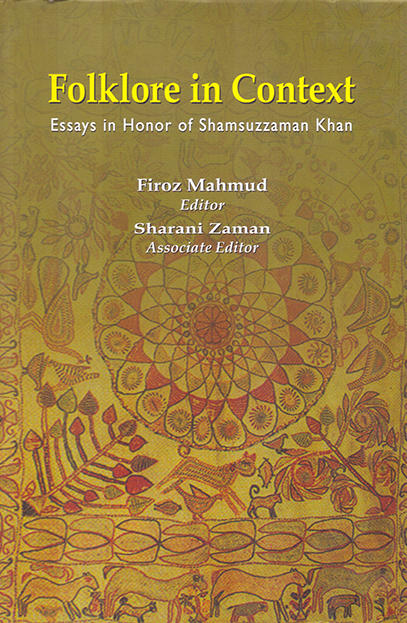- Shop
- Folklore in Context: Essays in Honor of Shamsuzzaman Khan
Folklore in Context: Essays in Honor of Shamsuzzaman Khan
https://uplbooks.com/shop/9789845060134-folklore-in-context-essays-in-honor-of-shamsuzzaman-khan-8291 https://uplbooks.com/web/image/product.template/8291/image_1920?unique=3d813f3
| Language: English |
Tags :
Book Info
Folklore in Context, & a festschrift in honor of Shamsuzzaman Khan, is a collection of essays featuring the current trends of folklore scholarship. The topics covered present, through compelling narrative and with analytical skill, a fascinating story of the depth and intricacy of functional and innovative acts inherent in folklore. It is, therefore, an embodiment of socially transmitted knowledge and behavior patterns and of practices and creativity. With scholarly authority, some of the foremost folklorists of the world have highlighted the significance of the study of folklore in context by recognizing the methodological necessity of extracting and synthesizing human behavior and cultural expression from both verbal data and artifacts. Scholars and students interested in folklore, ethnography, museology, art history, social history and behavioral science will find the book extremely useful. An important goal of the book, in line with current folkloristic thinking, is to encourage the study of folklore in context—to make the emerging folklorists know the creators, learn about their lives and understand how their work as well as their artistic performance is shaped by personal and social needs, by physical and economic conditions.




